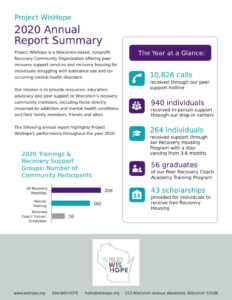Have you ever thought back to a particular moment in time to relive the experience? Nostalgia draws people in at the most unexpected times—remembering the past helps extend the conscious drive to understand our true identity. However, this can be a challenge for anyone with trauma or who may not want to recall their past.
Recovery has a way of encouraging us to remember the past, resulting from our search for personal growth. Despite seeking out the path towards recovery, our conscious existence will inevitably search for tangible, objective evidence of change through intangible and highly subjective memories.
One possible window into one’s past is offered through the act of journaling. Keeping a log of feelings, thoughts, and daily activities solidifies one’s mindset throughout time. For those recovering from alcohol or substance use disorder, logging updates of their changing relationship with addiction can act as a valuable glimpse into a continuous evolution of one’s shifting perspective. Journaling the development of addiction recovery often displaces traumatic memories with hope and inspiration.
The efficacy of writing through recovery differs amongst all putting pen to paper, but diary-keepers report higher quality in mood and mental health with consistent practice. Writers also experience improvements in open-ended communication with themselves and others through increased comfortability in conveying feelings. Still, opening to page one may feel unfamiliar and daunting. Here are some benefits of journaling and best practices for tethering one’s writing practice to recovery.
ELEVATE MOOD AND BOLSTER MENTAL HEALTH
Writing can be one of the healthiest expressions of emotion. Uncorking the well of unbridled truth through a daily writing practice creates a safe space for any pent-up thoughts that may build into anger, guilt, or resentment. Bringing the anxiety and stress of our thoughts onto the page can kickstart the process of acknowledging and accepting these feelings.
Still, what do we do with these emotions? With feelings like happiness, this question may come across as overthinking. The joy of positive emotions is typically welcomed naturally with an open embrace. However, more complex emotions—such as anger or sorrow—can drive an individual toward escapism. People grow intent to evade these negative feelings and the present moment of what feels like “enduring” them. Much like experiencing positive emotions, accepting these difficult emotions as they envelop us helps us heal from the pain.
Writing opens up space to cope with our negative feelings. Talking about anxieties with others can prove beneficial, particularly with friends, family, and peers who have experience with counseling. Yet, not all who are close to us are prepared to step in and offer the emotional availability we require. After all, every person deals with their share of mental health concerns, both about addiction and other factors.
Putting “pen to paper” also allows for portability. When experiencing an intense emotional build-up that might be difficult to vocalize, directing that burgeoning anxiety into one’s journal can streamline and de-escalate the compounding stress. Learning to write through these feelings helps accelerate the awareness necessary for recognizing triggers and practicing methods to self-soothe.
HOW TO KEEP AN IMPACTFUL JOURNAL
The best way to start writing is to start writing—pick up a pen and let the thoughts flow. Set aside adequate time to honor the energy that goes into revitalizing and renewing recovery. Not every essay needs to be Moby Dick. You can sit down and get the composition ball rolling with just a few minutes each day. Keep the journal entry brief, and remember how helpful committing to a record of one’s ongoing truth can encapsulate invaluable reflections moving forward.
Journaling allows a free space for whatever the writer wants. If you doubt the steps leading to long-term recovery or how to survive a troubling or tragic situation, jot those thoughts down. Some journal entries might look like the scribblings of margin doodles, visually representing that day’s mood. Shockingly few areas of adult life promote creative expression to process adult emotions. When we need to chisel away at amorphous weights like grief, individuals need to adopt innovative solutions to prioritize mental health.
Individuals coping with alcohol or substance use disorder can also learn to become allies through journal entries. You may be the only soul to know that a journal of this nature even exists, opening the rare possibility to connect with thoughts and feelings that tend to get bottled up with your friends, family, and peers. Confiding in one’s own capacity to read and empathize can embolden self-trust along with the agency to advocate for empowered and strengthened mental health.
Recovery takes many forms, and the anxiety sewn into each moment can ensnare the concerned mind of individuals coping with alcohol or substance use disorder when enduring crisis. The best way forward is often found by first looking inward. Edifying your present mindset into written word extracts nuggets of deep-seated truths to bring them into an open-minded space. The dynamic breakthroughs that recovering individuals yearn for might not happen in a week—or even in a year—but time and repetition spent processing difficult circumstances can reveal the true identity of any individual. We can only hope to discover ourselves within recovery by getting to know who we have been running from and where we look on the horizon to keep going. At WisHope, we view recovery as a lifelong effort, one that can be fraught with risk. That is why we work to elevate sober lifestyles through a personalized recovery program, impacting peers during treatment and long after moving on from outpatient care. Don’t wait to get help—call us today at (844) 947-4673.


